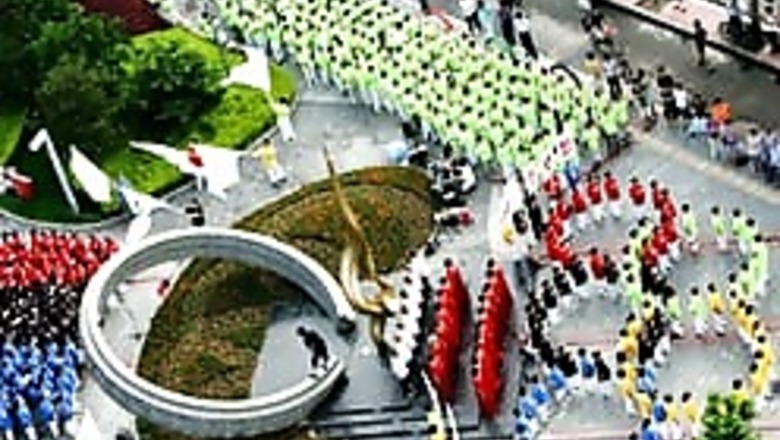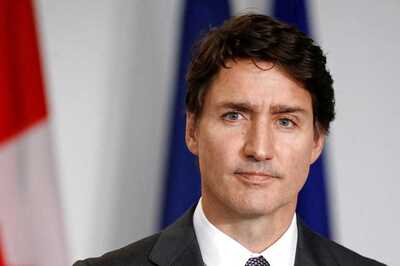
views
Denver: Waving the Tibet flag or paying tribute to the Dalai Lama during the medals ceremony will be against the rules at the Beijing Olympics, though the penalties for those infractions remain unknown.
With fewer than 100 days until the Beijing Games, the International Olympic Committee clarified its protest rules on Monday, saying that athletes' external appearance, clothing and gestures would be scrutinized at Olympic venues.
The IOC sent a six-point letter, a copy of which was obtained by The Associated Press, to the national Olympic federations in response to their request for interpretations of Rule 51.3 of the Olympic charter. That rule states ''no kind of demonstration or political, religious or racial propaganda is permitted in any Olympic sites, venues or other areas.''
The letter expanded on the rule, saying: ''The conduct of participants at all sites, areas and venues includes all actions, reactions, attitudes or manifestations of any kind by a person or group of persons, including but not limited to their look, external appearance, clothing, gestures, and written or oral statements.''
But there were no guidelines about possible punishment, which kept in step with IOC president Jacque Rogge's stance. Asked about Rule 51 last month, he said, ''I'm not in a sanction mode, definitely not.''
The IOC has long relied on Rule 51.3 as its guiding principle for Olympic participants, but has been pressed of late to offer more guidance in light of recent protests over Tibet and China's crackdown on dissenters.
The U.S. Olympic Committee was studying the new guidelines. Spokesman Darryl Seibel said the USOC has a disciplinary board at every Olympics, and that group would likely decide if discipline was warranted should an American athlete break Rule 51.
He said all the world's athletes are expected to follow the rule, ''and that will be the case with our delegation as well.''
''We're not going to deal with hypothetical situations,'' Seibel said. ''As has been the case with previous games, Rule 51 is the guide. We expect every member of our delegation to comply with Rule 51. We don't intend to introduce guidelines that would be any more restrictive than Rule 51.''
Last month, Rogge said IOC officials will use common sense to decide whether athletes are simply celebrating victories or using them to make political statements.
''Freedom of expression is something that is absolute. It's a human right. Athletes have it,'' Rogge said.
Seibel said the new guidelines would be passed onto leaders of the individual sports, who would be asked to tell their athletes about them.
''Freedom of expression is something we value and respect,'' Seibel said. ''As with previous games, our athletes will be perfectly free to express themselves, so long as it is done in a manner consistent with Rule 51.''
The IOC letter said that, indeed, Olympic athletes are free to express their opinions, so long as those expressions are in compliance with the Olympic charter.
It gave athletes permission to answer questions on any topic in media interviews and said the rule relied on the ''common sense of all athletes and other participants in showing respect for the dignity of all fellow athletes, including those of the host country.''
The letter reiterated the IOC's oft-stated position that the Olympics are a ''great sports festival.''
''They are not a stage for different kinds of political statements about issues such as armed conflicts, regional differences, religious disputes and many others,'' it said.
This position differs with the actual history of the games, which have been marked by political gestures, boycotts and violence over the past four decades.
One of the iconic pictures of the 20th century was that of Tommie Smith and John Carlos on the medals stand in 1968, raising their black-gloved fists and bowing their heads during the playing of ''The Star-Spangled Banner.'' Both were expelled from the games.
That type of display would also presumably be forbidden in Beijing.



















Comments
0 comment